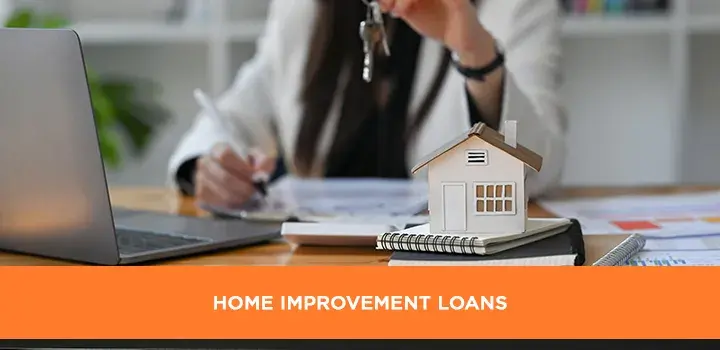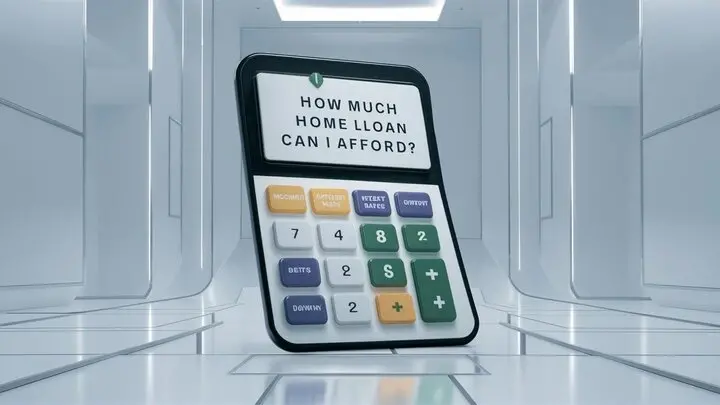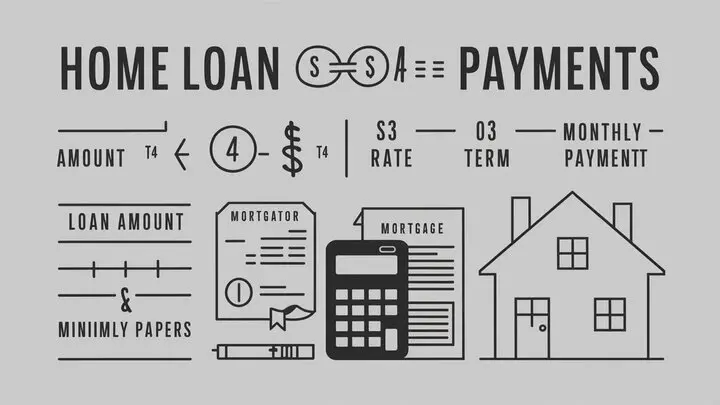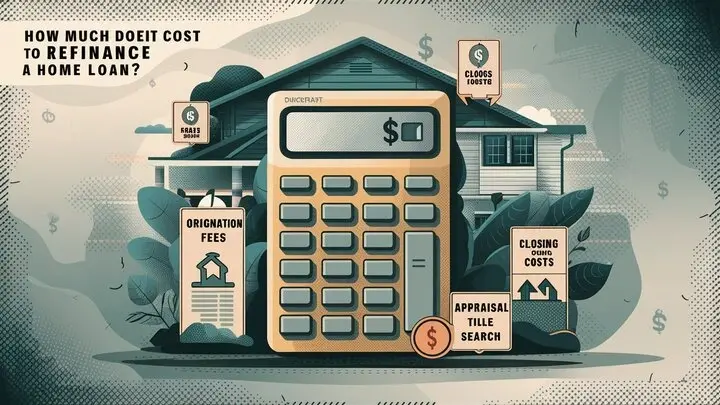-
Posted on: 21 Dec 2022

-
Dreaming of a kitchen remodel? Or perhaps a much-needed bathroom upgrade? Home improvement projects can significantly enhance your living space and increase your property value. However, financing these projects can be a hurdle. This comprehensive guide by Credit Repair Ease will walk you through everything you need to know about home improvement loans, from understanding different loan types to improving your chances of approval.
Understanding Home Improvement Loans
Home improvement loans are specifically designed to help homeowners finance renovations, repairs, and upgrades to their properties. These loans can cover a wide range of projects, from minor cosmetic changes to major structural improvements. Understanding the different types of loans available is the first step in securing the financing you need.
Types of Home Improvement Loans
- Home Equity Loans (HEL): These loans allow you to borrow against the equity you've built up in your home. The loan amount is based on the difference between your home's current market value and the outstanding balance on your mortgage. Home Equity Loans typically have fixed interest rates and repayment terms.
- Home Equity Lines of Credit (HELOC): Similar to a home equity loan, a HELOC allows you to borrow against your home equity. However, instead of receiving a lump sum, you have access to a revolving line of credit that you can draw upon as needed. HELOCs often have variable interest rates.
- Personal Loans: Unsecured personal loans can be used for a variety of purposes, including home improvement. Since they are unsecured (not backed by collateral like your home), they often have higher interest rates than home equity loans or HELOCs. However, they can be a good option if you have limited equity or prefer not to put your home at risk.
- FHA 203(k) Loans: Backed by the Federal Housing Administration (FHA), 203(k) loans are specifically designed for borrowers who want to purchase or refinance a home and include funds for renovations. They are particularly useful for buying fixer-uppers.
- Renovation Loans: These are similar to FHA 203(k) loans but offered by private lenders. They can be more flexible than 203(k) loans but may also have stricter requirements.
- Credit Cards: Using a credit card for home improvement projects can be convenient, especially for smaller expenses. However, credit cards typically have high interest rates, so it's important to pay off the balance quickly. Look for 0% introductory APR offers or rewards cards that can help you save money.
Choosing the Right Loan for Your Needs
The best type of home improvement loan for you will depend on several factors, including:
- The amount of equity you have in your home.
- Your credit score.
- The size and scope of your project.
- Your risk tolerance (regarding variable vs. fixed interest rates).
- The availability of specific loan programs.
Carefully consider these factors and compare offers from multiple lenders before making a decision. A mortgage broker can be a valuable resource in helping you navigate the loan options and find the best fit for your situation.
Eligibility Requirements for Home Improvement Loans
Lenders assess various factors when evaluating your application for a home improvement loan. Understanding these requirements can help you prepare and increase your chances of approval.
Credit Score
Your credit score is a crucial factor in determining your eligibility for a loan and the interest rate you'll receive. A higher credit score generally translates to lower interest rates and better loan terms. Most lenders look for a credit score of 620 or higher for home equity loans and personal loans. FHA 203(k) loans may have slightly lower credit score requirements.
How to Improve Your Credit Score Before Applying
- Check your credit report for errors and dispute any inaccuracies. Credit Repair Ease can help you identify and address errors on your credit report.
- Pay your bills on time. Payment history is the most significant factor in your credit score.
- Keep your credit utilization low. Aim to use less than 30% of your available credit on each credit card.
- Avoid opening too many new credit accounts at once.
- Consider becoming an authorized user on a credit card with a good payment history.
Debt-to-Income Ratio (DTI)
Your debt-to-income ratio (DTI) is the percentage of your gross monthly income that goes towards paying off your debts, including housing costs, credit card payments, and other loans. Lenders use DTI to assess your ability to manage additional debt. Generally, lenders prefer a DTI of 43% or less.
How to Lower Your DTI
- Pay down existing debt. Focus on paying off high-interest debts first.
- Increase your income. Consider taking on a side hustle or negotiating a raise.
Home Equity (for Home Equity Loans and HELOCs)
For home equity loans and HELOCs, you'll need to have sufficient equity in your home. Lenders typically require you to have at least 15-20% equity to qualify. This means your loan balance should be no more than 80-85% of your home's value.
How to Build Home Equity
- Make extra mortgage payments.
- Wait for your home value to appreciate. (While market dependent, this is generally a natural process over time)
- Make a larger down payment when purchasing your home. (Relevant if you are buying a new home and planning renovations)
Appraisal
An appraisal is required to determine the current market value of your home. Lenders use the appraisal to assess the risk of the loan. The appraisal will also take into account the planned improvements and their potential impact on your home's value.
Income and Employment Verification
Lenders will require documentation to verify your income and employment, such as pay stubs, W-2s, and tax returns. Stable employment and a consistent income stream are essential for loan approval.
Steps to Applying for a Home Improvement Loan
Applying for a home improvement loan can seem daunting, but breaking it down into manageable steps can make the process easier.
- Determine your budget: Accurately estimate the cost of your project, including materials, labor, and permits. Be sure to add a buffer for unexpected expenses.
- Check your credit score and credit report: Knowing your credit score and addressing any errors on your credit report is crucial. Credit Repair Ease can provide assistance with credit report analysis and dispute resolution.
- Shop around for lenders: Compare offers from multiple lenders to find the best interest rates, terms, and fees. Don't be afraid to negotiate.
- Gather your documentation: Collect all the necessary documents, including pay stubs, tax returns, bank statements, and a copy of your driver's license or other government-issued ID.
- Complete the loan application: Fill out the application accurately and completely.
- Undergo the appraisal process: Schedule an appraisal with a licensed appraiser.
- Review the loan documents carefully: Before signing, carefully review all the loan documents to ensure you understand the terms and conditions.
- Close the loan: Once the loan is approved, you'll attend a closing where you'll sign the final documents and receive the loan funds.
Home Improvement Projects That Increase Home Value
While any home improvement project can enhance your living space, some renovations offer a greater return on investment (ROI) than others. Consider these projects when planning your upgrades:
- Kitchen Remodel: A well-designed and updated kitchen is a major selling point for potential buyers.
- Bathroom Remodel: Modernizing bathrooms can significantly increase your home's appeal.
- Adding a Bathroom: If your home only has one bathroom, adding another can greatly increase its value.
- Finishing a Basement: Transforming an unfinished basement into a usable living space can add valuable square footage to your home.
- Improving Curb Appeal: Landscaping, painting, and replacing siding can make a big difference in your home's first impression.
- Energy-Efficient Upgrades: Installing energy-efficient windows, doors, and appliances can save you money on utility bills and increase your home's value.
The Role of Credit Repair in Obtaining Home Improvement Loans
A strong credit score is essential for securing favorable terms on a home improvement loan. If your credit score is less than ideal, credit repair can be a valuable investment. Credit Repair Ease specializes in helping individuals improve their credit scores by identifying and disputing inaccurate, outdated, or incomplete information on their credit reports.
By addressing credit issues, you can significantly increase your chances of loan approval and qualify for lower interest rates, saving you money in the long run. Contact Credit Repair Ease today to learn more about our credit repair services and how we can help you achieve your home improvement goals.
Alternative Financing Options
If you don't qualify for a traditional home improvement loan, or if you're looking for alternative funding sources, consider the following options:
- Government Grants: Explore government grant programs that may offer financial assistance for specific home improvements, such as energy efficiency upgrades or repairs for low-income homeowners.
- Personal Savings: Using your personal savings to finance your home improvement project can help you avoid taking on debt.
- Borrowing from Family or Friends: Consider borrowing money from family or friends, but be sure to establish clear terms and repayment schedules to avoid straining relationships.
- Crowdfunding: Crowdfunding platforms can be used to raise money for home improvement projects, especially if you have a compelling story or a unique project.








